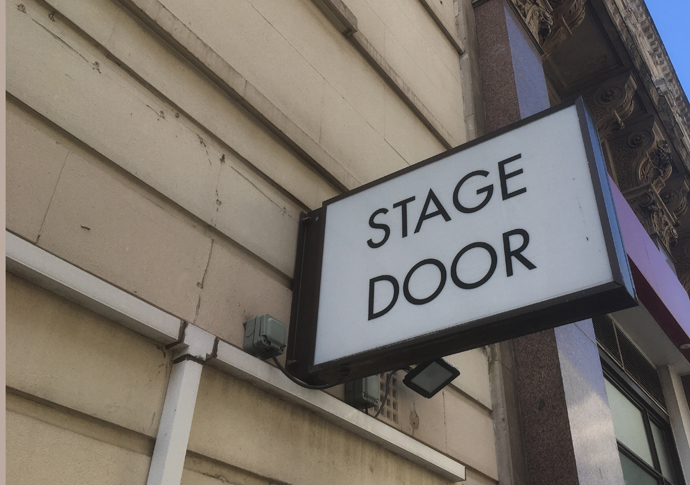Arts charity faces probe of business
Commission’s look into Seven Dials Playhouse follows sale of property
Friday, 23rd May 2025 — By Tom Foot

AN investigation has been launched into a popular haven for actors once celebrated among a host of legends of stage and screen.
A government regulator said yesterday, Thursday, it was looking into the Seven Dials Playhouse – SDP – because of “financial concerns”.
The charity, formerly The Actors Centre, rebranded after almost hitting the buffers during the Covid-19 pandemic and scrapped its actor training scheme. The sale of its historic base in Tower Street, Covent Garden, last year triggered a campaign led by acting greats including Simon Callow, Judi Dench and Mark Rylance.
Announcing the investigation, The Charity Commission said it had been engaging with the SDP since last year but “several revised drafts of a business plan” provided had “failed to reassure the regulator of the charity’s long-term financial viability and has therefore raised concerns about significant risks to the charity’s funds”.
The SDP put out a statement yesterday warning the public announcement of an investigation risked bringing devastating “reputational damage” to the organisation and it was confident it “can address these concerns in full”.
In the last two months it agreed a strong new business plan, was operating as a “lean and focused team” and had also acted in the interests of the “artists we serve”.
The SDP said it had been forced into the sale of its home, and added that two-thirds of the funds raised had been spent on clearing historic debt.
There had been a near complete collapse of revenue and membership, driven by the restrictions in place during the pandemic.
The former Actors Centre had up to 2,158 members but by 2019/20 membership had fallen to 939, with just 75 “consistently participating members”, the new management’s statement said.
For decades the centre provided hundreds – sometimes thousands – of training workshops a year. But in 2020, the SDP said, these were “routinely cancelled” due to low attendance. This meant paying members were getting “little or no benefit from their subscriptions”, it said.
“When the pandemic hit, many members – understandably – cancelled their subscriptions. But with such low engagement even before Covid, it became clear that the model hadn’t simply been paused, it had already ceased to be viable. Asking artists to resubscribe to a service they had previously chosen not to use would not have been sustainable, or ethical.”
It added: “In September 2024 the organisation completed the sale of its building.
“The decision to sell the building was made in order to address the substantial financial liabilities the organisation had accumulated and to enable a complete change of course, one that could generate new revenue streams and build a sustainable future, following the collapse of the old membership and training model.”
Part of the row that has been going on over the last two years was focused on the SDP moving away from its commitment to providing a nurturing base for young actors.
The commission said the SDP had a stated purpose to “advance education and the arts for public benefit through research, discussions, seminars and vocational training. It also has a purpose to provide facilities for the arts (especially theatre), and to produce educational plays.”
Last year the “Actor at the Centre” campaign group put out an open letter warning about the financial viability of the organisation.
Some 50,000 Equity members backed the campaign in an online petition.
They warned that an acting community in the heart of the capital was being broken up.
The original Actors Centre was set up in 1978 by Clive Swift as a place where actors could continue training and support each other. It was inspired by the model of American actor workshops where performers honed their craft regardless of whether they were on stage or screen.
Mr Swift enlisted the support of notable figures such as Sheila Hancock, Jonathan Miller, and John Alderton. Meetings took place at Equity’s council offices, with passionate debates and endless discussions about objectives. One of the founding principles was to offer training for actors after they had finished formal education, a concept rare in this country at the time.
In April the campaign group said: “If 1A Tower Street cannot be reclaimed for its original purpose, we must ask ourselves what it would take to build a new Actors Centre, one that honours the old, but meets the needs of today’s industry. It would require backing from Equity, funding from arts bodies, and most importantly belief from the acting community that we deserve a space of our own.”
The SDP’s statement added: “The commission’s inquiry will focus on the viability of our strategic and financial plans, areas where scrutiny is entirely appropriate for any charitable organisation.
“It is true that our model includes a period of investment before we expect to break even, with year three forecast as the tipping point. The long-term model is built on a diverse and balanced approach to income generation, including box office sales, fundraising, grant applications, individual giving, sponsorship, and space hire.
“We are managing resources carefully and strategically, and the majority of available funds are projected to remain in reserve even after the initial investment period.”